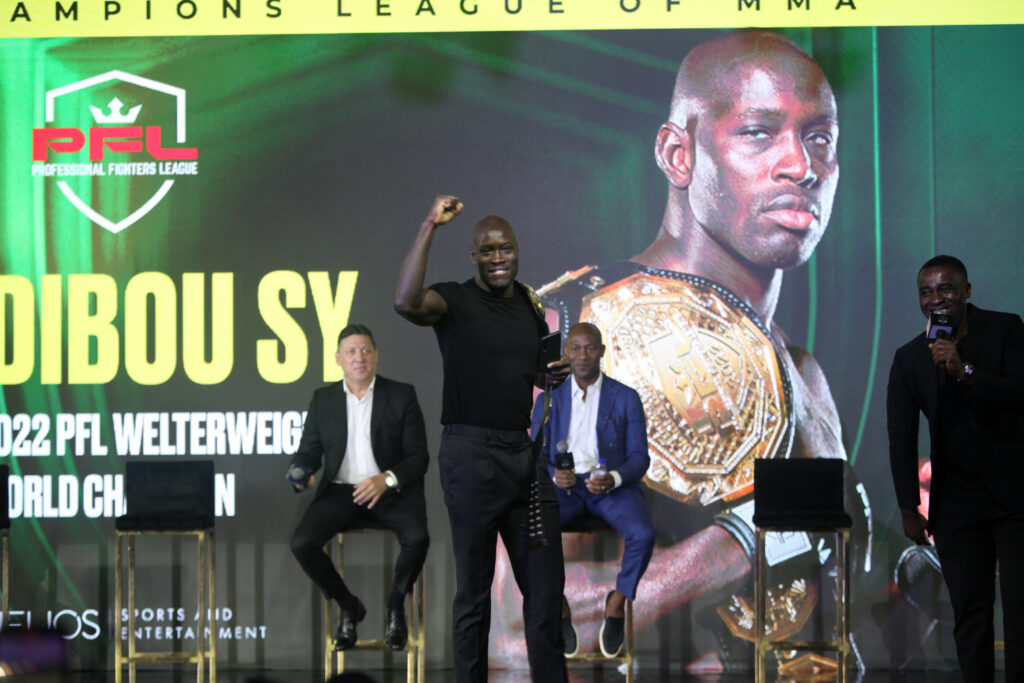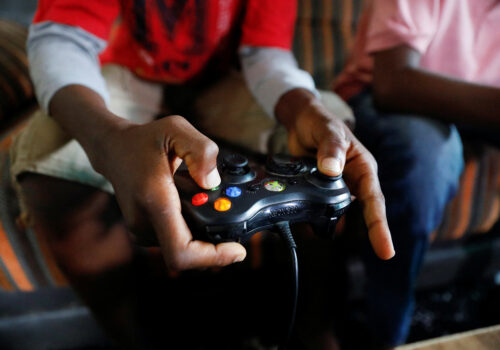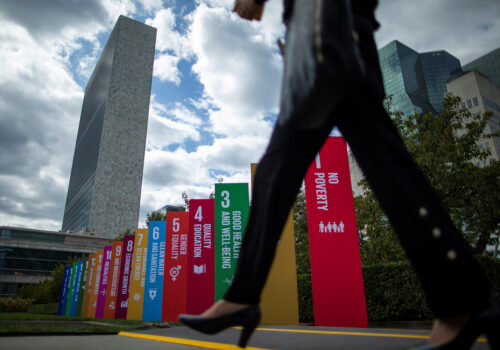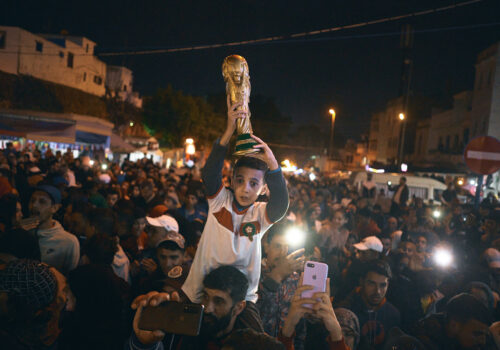This week, for the first time ever, the Professional Fighters League (PFL) is bringing a mixed martial arts (MMA) event to Africa. The league’s expansion could play a part in redefining sports opportunities for African youth and positioning the continent as a new hub in global combat sports.
MMA channels a spirit of courage, discipline, and resilience in a regulated sport that combines striking and grappling, combat styles seen across boxing, wrestling, and jiu-jitsu. US-based MMA has become one of the fastest-growing sports; US broadcasts routinely pull in about 500,000 domestic viewers per fight, with some events reaching up to five million global viewers. Organizations such as the PFL have averaged eight million global viewers per event, have secured lucrative media deals, and have even drawn political attention. For example, US President Donald Trump is a longtime supporter of the sport, and he has attended several major events and expressed interest in hosting an MMA event at the White House in 2026.
The PFL will host its event in Cape Town on July 19. It will be historic, not only because it is the first PFL event in Africa, but also because it coincides with the launch of PFL Africa, a new league that could help make the continent a central player in the world of professional MMA. For that reason, it represents an exciting new chapter in African sports and athletes’ careers.
The new league will be led by Francis Ngannou, a Cameroon-born heavyweight superstar. Ngannou’s journey from working in sand quarries to becoming a world champion demonstrates how MMA can transform lives, offering young Africans a path to achieve their dreams and change their communities. “African athletes can achieve greatness,” Loren Mack, senior vice president of communications at the PFL, said. “[Ngannou] came from nothing and became a world champion, and that journey resonates deeply with many across Africa.
The PFL is not alone in recognizing the continent’s potential. Major global sports organizations are taking similar steps. The National Basketball Association launched the Basketball Africa League in 2021 as its first league outside North America, and the National Football League has seen over 150 players of African descent actively engaging with the continent through development camps, outreach initiatives, and efforts to grow the sport’s footprint across Africa. Together, these moves signal a broader shift: Africa is no longer just a source of talent but increasingly a hub for global sports investment and innovation.
Why Africa and why now?
While this may be MMA’s first formal leap onto the continent, Africa is no stranger to combat sports. Traditional disciplines such as Senegalese wrestling have captivated audiences for generations, with athletes achieving celebrity status and national acclaim. The cultural appetite for intense, disciplined competition already exists, making the ground remarkably fertile for MMA’s rise.
The PFL likely chose Africa for its dynamic, young population and deep-rooted passion for combat sports. Africa’s median age is under twenty, and approximately 60 percent of the population is under age twenty-five, so the continent offers a massive youth base—which is more likely to practice boxing, wrestling, or traditional martial arts. “We see it as an untapped well of talent,” said Mack, pointing to champions such as Ngannou, Cédric Doumbé, and Impa Kasanganay (an American born to Congolese parents) as examples of the continent’s global impact. Cape Town, Mack added, “ticked so many boxes strategically,” from its venues and vibrant sports culture to its appeal as a global tourist destination. The city could feasibly stage African events to the same standard as New York or Las Vegas can.
By building an MMA league in Africa—which will involve organizing tryouts, supporting training centers, offering professional contracts, and more—the league could potentially identify, nurture, and promote African fighters, as well as help make MMA a viable career path and a source of community pride in Africa.
Beyond the fight
As seen in football and other sports, African athletes often bring extraordinary skill and dedication that electrify international competitions.
But unlocking this potential requires more than just showcasing talent. It also requires investing in the systems around it, through building long-term infrastructure, leading scouting programs, launching grassroots partnerships, and driving development platforms that can sustain local talent over time. PFL’s international expansions in the Middle East and Europe have included efforts to invest in the ecosystems around the sport, such as establishing league-format competitions, initiating scouting programs, and forming regional training and broadcast partnerships aimed at developing local talent over time. Africa should not be an exception.
A successful expansion also depends on establishing trust with stakeholders, who range from fighters to their families to fans to sponsors. The PFL has indicated it will apply the same standards in Africa as in its events elsewhere, including ones regarding referees, medical coverage, and overall production quality. Trust is vital to ensure that African fighters can train and compete safely, while providing audiences with a professional, world-class experience.
Beyond the fights, it will also be important to create a commercially viable ecosystem around the sport, in part by engaging local media, broadcasters, and sponsors. Through youth initiatives, fan events, and training programs, the league could help shape not just the next generation of fighters but also future coaches, promoters, and supporters. That, in turn, could embed MMA more deeply into African society, not just as entertainment, but as a tool for community empowerment and economic growth.
The continent’s place in global sports is undergoing a historic shift. Investments in Africa’s future now can offer young people new arenas to excel and inspire the next generation of champions.
Anthony Manga is the founder and chief executive officer of Manga Global, a business advisory and trade facilitation firm.

The Africa Center works to promote dynamic geopolitical partnerships with African states and to redirect US and European policy priorities toward strengthening security and bolstering economic growth and prosperity on the continent.
Further reading
Mon, Jun 30, 2025
Africa’s game revolution is loading
AfricaSource By Tom Bonsundy-O’Bryan
With the right investment, infrastructure, and visibility, Africa won’t just be a player in the global gaming industry—it will be the one pushing it forward.
Fri, Jun 27, 2025
In Seville, leaders have an opportunity to tackle systemic global inequality. Will they take it?
AfricaSource By
Achieving the Sustainable Development Goals at the global level increasingly depends on progress being made in Africa.
Fri, Jun 27, 2025
Don’t leave Africa behind in sports sustainability—put it first
AfricaSource By
The hosts of the upcoming Olympic Games and FIFA World Cup are committing to sustainability goals inside their countries. But achieving a sustainable sports legacy will take a global approach.
Image: Sadibou Sy, 2022 PFL welterweight world champion participates in the launch of PFL Africa in Lagos, Nigeria, on Wednesday, July 10, 2024. Photo by Adekunle Ajayi via Reuters.



